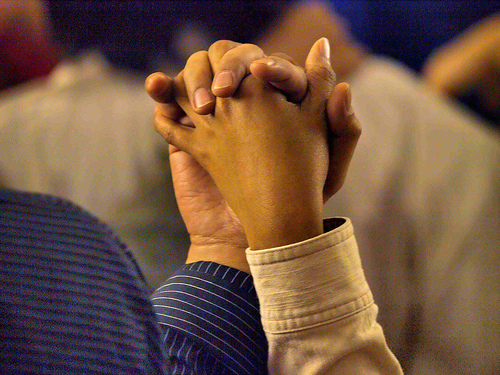It hasn't felt much like Christmas this year.
Maybe it's because the month of December has been fraught with sickness and the stress that comes from having to squeeze a month's worth of Christmas shopping into just a couple of days (hence - gift cards don't quite cut it!) Maybe it's because there hasn't been much snow. (Naah, for me that's not it.) Maybe it's because we had been looking forward to all being able to go out to a peaceful, serene candle-light Christmas Eve service which turned out to be anything but - for those of us that were even well enough to go at all. :(
Maybe it's because we've not been able to sing since early December, so it's seemed pointless to have Christmas music in the house. (We like to sing along.)
Perhaps it's because right around the time the sickness started, there was an injury that put one of our family into a wheelchair and off work. Our days have been pre-occupied with making the house accessible - when we've been able to expend the energy to do manual labor.
It could be that we were so weak that we couldn't get the tree put up until December 15 instead of the first weekend in December.
As I look at all those possible reasons, nowhere do I find anything about what the season is really about. All I see are traditions to which we've become attached and which weren't possible.
I had "Christmas Moments" a couple of times this month, but they had nothing to do with the traditions. They had to do with giving something to someone who needed it, who couldn't possibly afford it, or who wouldn't get something like [fill in the blank] for him or her self. Nowhere was there the thought of being paid back (or of that mentality that says, "Well SHE spent twenty dollars on MY gift so I have to spend at least twenty dollars on HERS." (Yikes!) It was simple giving, from the heart, made all the more special because it was unexpected without keeping score.
Once I let go of my preconceived notions, my hopes of what I would experience, and started focusing on the Reason we mark December 25 on the calendar - the baby in the manger, the light in the darkness, the way opened to everyone who would open the door to Him - that's when it happened.
It started "feeling like Christmas."
It didn't matter that there wasn't any snow, or many presents under the tree. It didn't matter that plans were foiled, that the whole Christmas Eve traditions were ruined, or that we weren't able to sing Christmas carols and go look at the lights.
Christmas morning came, just the same. Sitting around the tree, one of us read the Christmas story (not the "Night Before Christmas" poem by Samuel Clemens, but the one in Luke 2!) and we went to Youtube and found the song we always sing. We let the Brooklyn Tabernacle choir sing it instead - and as usually happens - I 'teared up'.
There wasn't anything super-special about the whole thing. And soon, I'll be starting to get the Christmas meal ready, with all the hard work that entails.
And it still feels like Christmas.
Maybe it's because the month of December has been fraught with sickness and the stress that comes from having to squeeze a month's worth of Christmas shopping into just a couple of days (hence - gift cards don't quite cut it!) Maybe it's because there hasn't been much snow. (Naah, for me that's not it.) Maybe it's because we had been looking forward to all being able to go out to a peaceful, serene candle-light Christmas Eve service which turned out to be anything but - for those of us that were even well enough to go at all. :(
Maybe it's because we've not been able to sing since early December, so it's seemed pointless to have Christmas music in the house. (We like to sing along.)
Perhaps it's because right around the time the sickness started, there was an injury that put one of our family into a wheelchair and off work. Our days have been pre-occupied with making the house accessible - when we've been able to expend the energy to do manual labor.
It could be that we were so weak that we couldn't get the tree put up until December 15 instead of the first weekend in December.
As I look at all those possible reasons, nowhere do I find anything about what the season is really about. All I see are traditions to which we've become attached and which weren't possible.
I had "Christmas Moments" a couple of times this month, but they had nothing to do with the traditions. They had to do with giving something to someone who needed it, who couldn't possibly afford it, or who wouldn't get something like [fill in the blank] for him or her self. Nowhere was there the thought of being paid back (or of that mentality that says, "Well SHE spent twenty dollars on MY gift so I have to spend at least twenty dollars on HERS." (Yikes!) It was simple giving, from the heart, made all the more special because it was unexpected without keeping score.
Once I let go of my preconceived notions, my hopes of what I would experience, and started focusing on the Reason we mark December 25 on the calendar - the baby in the manger, the light in the darkness, the way opened to everyone who would open the door to Him - that's when it happened.
It started "feeling like Christmas."
It didn't matter that there wasn't any snow, or many presents under the tree. It didn't matter that plans were foiled, that the whole Christmas Eve traditions were ruined, or that we weren't able to sing Christmas carols and go look at the lights.
Christmas morning came, just the same. Sitting around the tree, one of us read the Christmas story (not the "Night Before Christmas" poem by Samuel Clemens, but the one in Luke 2!) and we went to Youtube and found the song we always sing. We let the Brooklyn Tabernacle choir sing it instead - and as usually happens - I 'teared up'.
There wasn't anything super-special about the whole thing. And soon, I'll be starting to get the Christmas meal ready, with all the hard work that entails.
And it still feels like Christmas.












